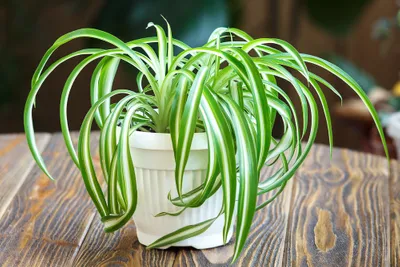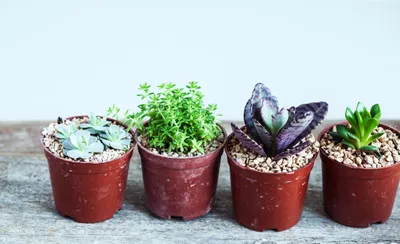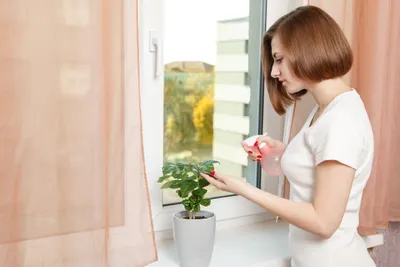Most people agree that plants look nice, but there are more reasons than just aesthetics to have more of them in your home. Plants do positive work for your home’s air quality that you may not be aware of, and they can also benefit you in other healthy ways.
Set up a variety of plants in appropriate places in your home (find out how much sun and water they need, and if they will thrive indoors). Not only will it give your home a more natural feel from bringing the outdoors inside, you can enjoy the mind/body benefits that come with it. Here are six of those benefits…
1. Plants Purify the Air
Your indoor air quality may not be as good as you think; in fact, experts say indoor air is usually a lot worse than outdoor, even when pollution indexes are high. Plants in your home convert carbon dioxide into new oxygen and help purify the air (just like outdoor plants do on a larger scale), notes MindBodyGreen.com.
The source notes that the space agency NASA adds plants to its international space station to control air quality, so there’s a lot to be said for it. The right plants can neutralize harmful airborne substances in your home (or space station, if you happen to own one) such as benzene and formaldehyde, it adds.
2. They May Assist Immunity
Plants are truly your friends and can even help protect you against certain illnesses, according to TreeHugger.com. Plants increase the humidity indoors through a process called transpiration, which is “a gift” during the drier months, adds the source.
The source cites a study by the Agricultural University of Norway that shows adding additional healthy plants indoors can reduce your chance of developing a cold, sore throat or a dry cough. Apparently, higher “absolute humidity” may help wipe out the spread of the flu virus, notes the article.
3. They Boost Workplace Performance
A number of sources including Phys.org tout the mental benefits of having more plants indoors. The source notes that “environmental psychologists” have offered that indoor greenery can not only make you work more effectively, but be happier while doing it.
The articles points to office plants leading to “an improved emotional state, reduced negative mood states, reduced distraction, increased creativity, and improved task-performance.” We’re going out on a limb here to assume that if you work from a home office, you can expect the same benefits.
4. They Improve your I.Q.
Perhaps Einstein had many houseplants, because according to Scientific American, indoor plants can actually make you smarter. The points made in the article follow closely to the ones we’ve already made about better workplace performance related to plants, but this one is slightly more specific.
There is a thing called “directed attention”, which is how long we can remain focused on one task (Scientific American uses staring at a computer spreadsheet as an example). According to the article, natural foliage can help regenerate our directed attention capacity, which can drop off quickly (as you know). A study cited by the article showed subjects in a room with plants fared better at cognitive tests.
5. They Speed up Healing
Perhaps there are more good reasons than you think to bring flowers to a loved one in a hospital, other than making their drab room look nicer. According to TreeHugger.com, a study has shown plants to be “noninvasive, inexpensive, and effective complementary medicine for surgical patients.” Yes, it refers to indoor plants as a kind of medicine.
The study summary, which is actually posted on the U.S. National Library of Medicine website, explains that half of a group of 90 patients recovering from a hemorrhoidectomy procedure where placed in rooms with plants. Those patients had lower post-operative blood pressure, less pain, and decreased anxiety than those not in the company of plants. Conclusion? “Health care professionals and hospital administrators need to consider the use of plants and flowers to enhance healing environments for patients.”
6. They’re Safe and Relatively Inexpensive
You can buy mature plants or grow them from wee seedlings; the choice is up to you. However, compared to buying medications or enrolling in regular yoga classes, houseplants may actually have an edge in some ways as they are low-maintenance and are not needed in abundance to have a positive outcome (we’re not saying physical or mental therapy should be ignored if you have plants).
Bayer, a company that makes many products from pain relievers to insect control sprays, also celebrates the positive properties of plants. How many plants do you need to purify the air? According to the company, at least 15-plants (that are in at least 6-inch diameter pots) are suitable for 1,800-square feet of indoor space. For other health benefits such as stress and fatigue reduction, you’ll need one large (8-inches diameter) potted plant for every 129-square feet.









